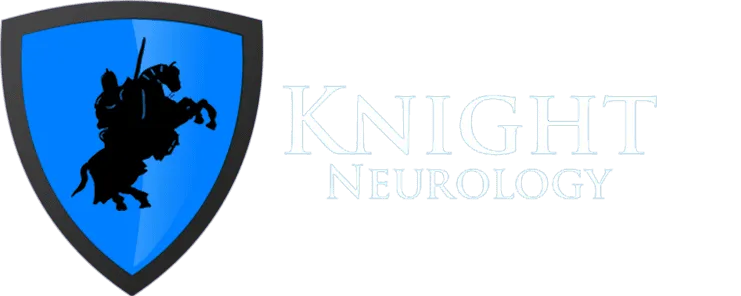What is a stroke?
A stroke is a medical event that happens when something blocks the blood flow to your brain or a blood vessel inside the brain bursts. As a result, your brain cannot get the oxygen it needs to function, and parts of your brain can either experience damage or die. Strokes are life-threatening medical emergencies, so you need immediate professional care.
The experts at Knight Neurology attend the two hospitals in the area. All have privileges at Cape Canaveral Hospital where they are able to see patients for stroke. They can diagnose, evaluate, and treat the primary types of stroke:
EMG/NCV
Guillain-Barre syndrome (an infection a condition that damages peripheral nerves).
EEG
In addition to diagnosing seizures, an EEG also helps your neurologist determine the type of seizure activity you have generalized or focal seizures.
What happens during an EEG? Knight Neurology performs EEG testing at the office. While you sit or lie back on the comfortable exam chair, a technician places the electrodes your scalp.Once the electrodes are in place, you close your eyes and relax, and your neurologist the EEG technician will start to record your brain wave activity. Your neurologist The technician may flash a light in your eyes or ask you to inhale and exhale deeply during the EEG to activate certain areas of your brain. During the session, you will be given instructions by the technician which may include the use of light-based stimulation or breathing exercises. Your neurologist This process might record of recording your brain wave activity normally takes about 40-60 minutes.
Multiple Sclerosis
Which Type of Multiple Sclerosis Do I have?
- Relapsing-remitting: RRMS is the most common type of multiple sclerosis of the four three. It causes intermittent flare-ups of symptoms between periods of remission that can become more severe over time.
- Emergency Treatment: If you have a life-threatening or severe injury If you are experiencing a medical emergency, please call 911 or go directly to the nearest hospital emergency room.
Ischemic stroke
An ischemic stroke happens when blood clots, pieces of plaque, or other particles stop blood from flowing to your brain.
Hemorrhagic stroke
A hemorrhagic stroke happens when one of the blood vessels inside your brain bursts. The blood builds up inside the brain and eventually damages the tissues.
What are the signs of a stroke?
It’s important to become familiar with the signs of a stroke. Even if you don’t recognize the symptoms in yourself, you may be able to recognize them when someone else is having a stroke. Recognizing a stroke helps you act quickly for the best possible outcome.
The signs and symptoms of either type of stroke include:
- Numbness or weakness on one side of the face or body
- Confusion or disorientation
- Vision problems
- Slurred speaking
- Trouble speaking
- Trouble understanding others
- Behavioral changes
- Loss of balance or coordination
- Dizziness
- Severe and sudden headache
- Nausea or vomiting
If you believe you or someone else is having a stroke, you must seek emergency care right away. Prompt care can help you avoid or limit complications like long-term brain damage, disability, and death.
What are my treatment options for a stroke?
To diagnose your stroke and evaluate the damage, the experts at Knight Neurology use advanced imaging tests like magnetic resonance imaging (MRI) and computed tomography (CT) scans. Other tests can also lend more information, such as an electrocardiogram (EKG) or a cerebral angiogram.
The experts at Knight Neurology provide treatment for strokes on a case-by-case basis. What works for one patient might not be the best approach for another. Treatment also tends to differ between the two main types of stroke.
On the conservative end, your treatment might involve medications like drugs that help dissolve blood clots for ischemic strokes or help your blood clot to control bleeding for hemorrhagic strokes. Very likely, your treatment will also involve surgery or other procedures such as medical thrombectomy, stenting, coiling, or clamping.
To learn more about stroke and how to recognize one, call Knight Neurology or schedule an appointment online today.
